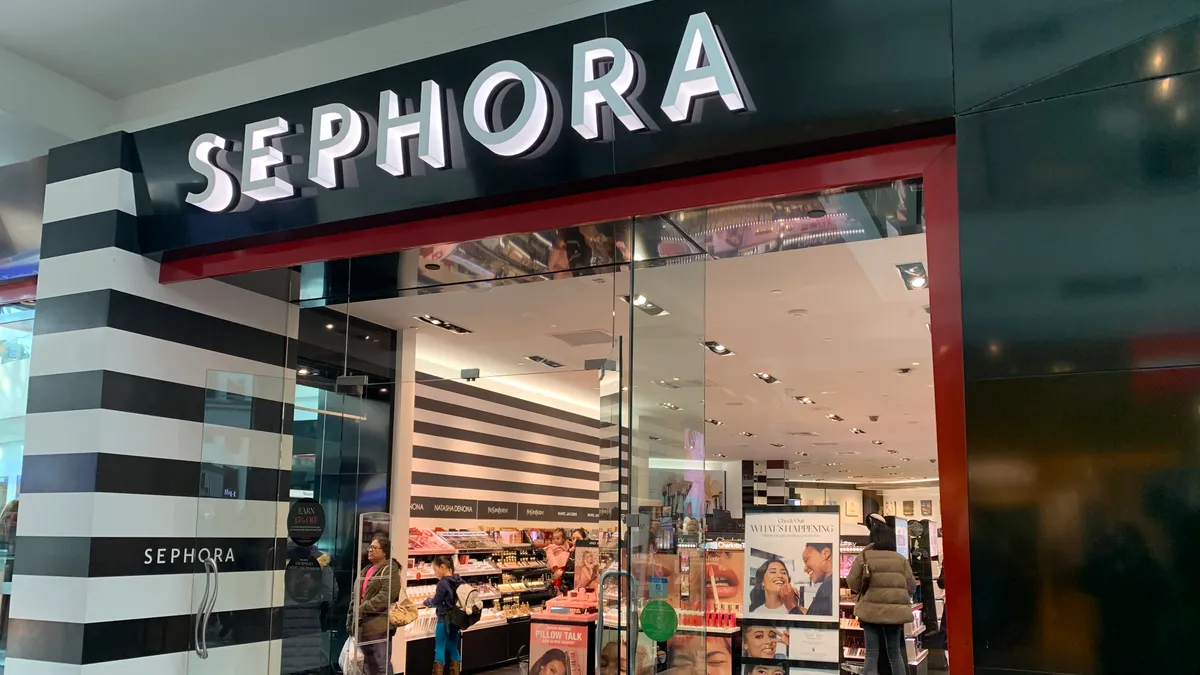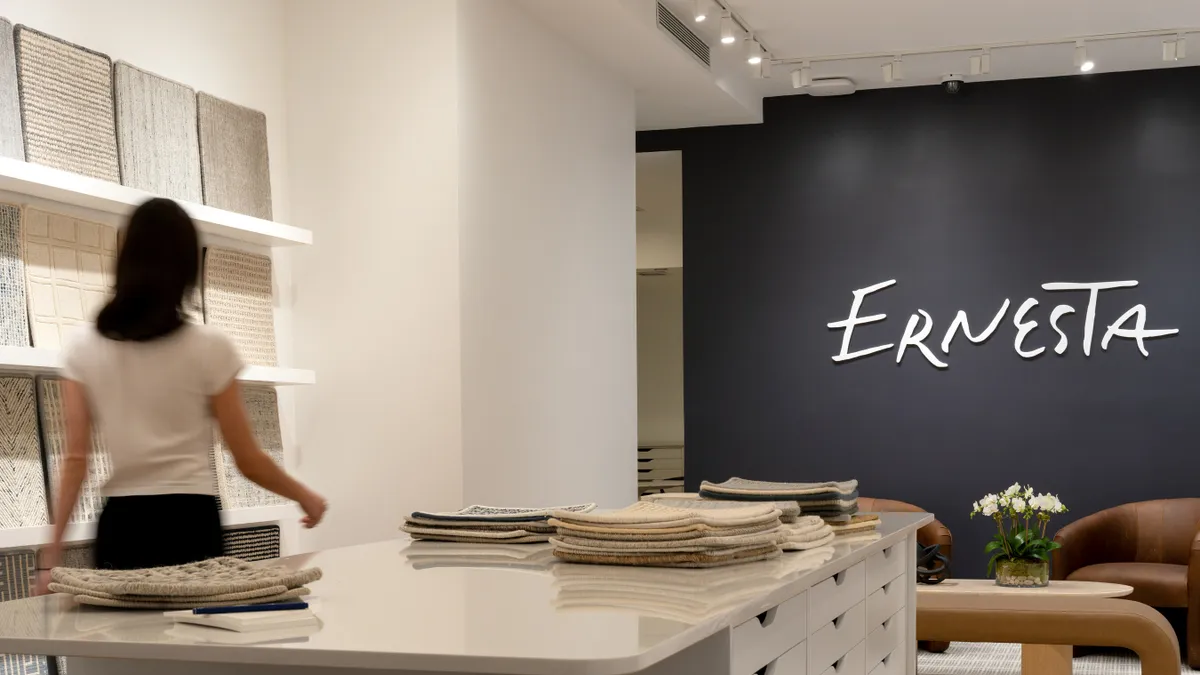In retail, it’s hard to understate the impact of customer product reviews.
With the growth of e-commerce over the past decade, shoppers are eager to hear what others think of products before they make a purchase — especially if it’s something they aren’t able to see in person or test in stores to begin with.
More than two-thirds of online adults in the U.S. rely on product ratings and reviews before they make a purchase, according to a 2024 report from Forrester.
This can be especially important for products that are highly individualized. In the beauty category, a person’s experience with a product can vary based on their skin type, skin tone, age and more.
Retailers and brands know how vital reviews are to purchasing decisions, which is why they’re eager to have a plethora of feedback available from existing users to potential new customers.
In walks the incentivized review — a way to easily gather feedback by providing a consumer with anything from a free product to a payment or a sweepstakes entry.
Sourcing incentivized reviews can be a quicker way to collect consumer reactions, especially for newer brands or product launches that may not have a ton of organic recognition yet. But can incentivizing reviews inflate ratings?
Pump those numbers up
A 2021 article in the Journal of Marketing Research found that incentivized reviews “contained a greater proportion of positive relative to negative emotion across a variety of product and service experiences.” The article’s findings (based on a series of experiments examining how incentivizing reviews can impact consumer emotions) found that this effect applied for both financial and nonfinancial incentives.
In general with incentivized reviews, Professor of Marketing at the Cornell SC Johnson College of Business Kaitlin Woolley — who co-authored the article — says two mains things can happen.
“One is [that] they increase the volume, like the number of people reviewing,” she told Retail Dive, adding that people are more likely to review if there is an incentive. Secondly, “the incentive itself changes the content of what people write and then also the rating that they apply to it.”
In many cases, people aren't able to separate the positive experience of the incentive they received from their review and rating of the product itself, Woolley added.
The Federal Trade Commission requires the disclosure of online incentivized reviews and consumer testimonials to make them easily identifiable. Whether required disclosures are able to prevent inflated ratings and provide reassurance to online shoppers seeking out authentic reviews is another question.
“Although it is better to have nonincentivized reviews, that often takes longer to build, and brands want the launch to be successful out of the gate,” Caroline Weintraub, vice president at True Beauty Ventures, a beauty and wellness emerging growth fund, told Retail Dive.
The investment group has a portfolio of well-known emerging beauty brands (some of which are sold at Sephora) such as skin care brands Dieux and Sofie Pavitt Face, as well as makeup brand Caliray.
“For smaller or emerging brands, incentivized reviews have become increasingly important,” Weintraub added. “When you are competing with legacy players that already have thousands of reviews, launching with a ‘zero review’ product page puts you at a disadvantage.”
Sephora is a place where shoppers can find new brands as well as tried and true ones. The retailer gives early access to some new product launches for its mobile app users before they go live on the full website.
Such was the case when Sephora earlier this month let app users have access to LoveShackFancy’s new fragrance, Secret Crush. During early access on Sept. 18 via Sephora’s app, the product already had 361 reviews listed, and all were labeled as incentivized at the time that Retail Dive checked that day.
Sephora makes it easy to know which reviews are incentivized by letting shoppers filter out incentivized reviews. Doing so will tell users how many nonincentivized reviews there are, though it will not adjust the average star rating provided.
Sephora declined an interview request in addition to requests for comment from Retail Dive for this story.
As an example, Sephora’s BB and CC cream makeup category contained 16 product listings on Sept. 22. Nearly two-thirds of all the reviews across this product category — adding up to 19,866 out of more than 30,000 total at the time Retail Dive collected data — were labeled as incentivized.
For the retailer’s eye primer makeup category, containing 20 product listings, over three-quarters of the 36,904 total reviews were labeled incentivized.
A necessary evil?
Per its website, Sephora’s reviews are managed by Bazaarvoice, an industry leader in user-generated content.
While Bazaarvoice did not elaborate on the specific nature of its relationship with Sephora, the company said that reviews generally are helpful for beauty brands regardless of their positive or negative tone.
“According to our research, over half of shoppers cite real customer reviews as the biggest factor in their final purchase decisions,” the company told Retail Dive via email. “For beauty specifically, 91% of consumers told us that it is a product category that is necessary to consult ratings and reviews before purchasing.”
Weintraub at True Beauty Ventures said that while large retailers don’t make incentivized reviews a strict requirement for brands they sell, the companies do heavily encourage it.
“Some retailers even connect brands with approved third-party platforms that help seed products and capture reviews, so there is an implicit expectation that brands will invest in this area,” she said.
Bazaarvoice said it stresses authenticity with the consumers that participate in its sampling campaigns.
“We encourage our reviewers who participate in sampling campaigns to leave their real, honest opinion,” the company said. “Good or bad. They are not penalized from participating in another campaign if they leave a negative or low-star review. This ensures that the [user-generated content] our clients receive is authentic, trustworthy and useful for those who will read them.”
A look at the r/Sephora Reddit forum shows that at least some shoppers are frustrated by the quantity of incentivized reviews for early access products and other listings.
In other industries, businesses may have more room to offer review incentives that don't directly impact ratings, according to Woolley. That could mean offering up exclusive information or access to a higher status for those who review products or services, similar to how peer-to-peer review platforms work.
In retail, that’s tougher, but the industry is unlikely to stop anytime soon.
“Transparency and balance are key to making incentivized reviews work without damaging consumer trust,” Weintraub said. “However, we feel that it is better to have reviews that say incentivized than no reviews at all.”























